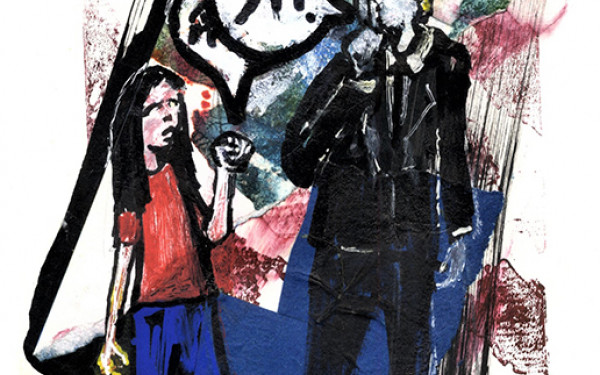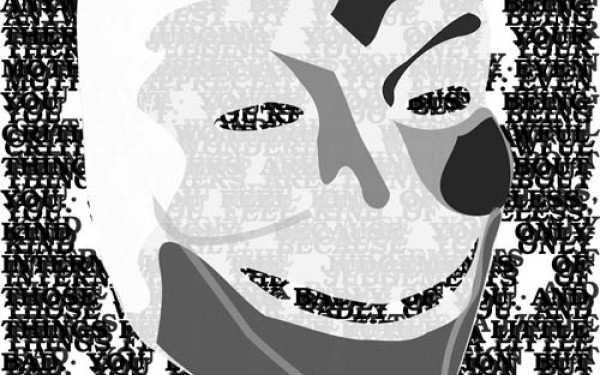Why Can’t I Speak My Mother Tongue?
The Trials of Learning African Languages in Canada
Letwin Rusere speaks Shona, one of the roughly 2,000 languages spoken in Africa.
African languages make up about one third of the world’s spoken languages, but those languages rarely travel outside of the continent and its islands.
Rusere is the VP of the African Students Association of Concordia. The association “provides a home away from home for many African students and anyone interested in African cultures,” she said.
She was born in Harare, the capital of Zimbabwe, and moved to Montreal about ten years ago with her family. She learned to speak Shona and English simultaneously in her hometown, and continues to speak her language with her mother and friends here in Montreal.
Her little brother, who was four years old when they moved to Canada, has lost his mother tongue, though.
“When you move away from home, if you’re not being exposed to the language, you can easily lose it,” Rusere said.
African languages are grouped in four distinguishable categories by shared linguistic characteristics: Afro-Asiatic, spoken in northern Africa, Nilo-Saharan, in central and eastern Africa, Niger-Congo, in central and southern Africa and Khoisan, in the western part of southern Africa. The Niger-Congo is the biggest lingustic group, encompassing more than 1,000 languages.
In Montreal, there are 2,995 people that speak a Niger-Congo language—almost a thousand more people than those who speak Hebrew. The latter, though, is far better represented in Montreal, with many schools and synagogues offering language classes.
ELA Jambo is the only language school in Quebec that teaches African languages, offering seven in total: Swahili, Wolof, Bambara, Lingala, Tshibula, Yemba and Kikongo.
The school opened in September 2012 and its mission is to promote African languages, with an eye on preserving the languages, said Guy-Serge Luboya, founder and director of ELA Jambo and Lingala professor.
“It’s abroad that you realize the importance of your language. When you’re abroad, you’re looking for landmarks.” —Guy-Serge Luboya, founder and director of ELA Jambo
“A language has to be spoken to be preserved,” he said.
Luboya founded the school after noting the number of Africans that don’t speak their mother tongue.
“It’s linked to a lot of different factors, like the colonization of Africa,” he explained. “The school has a mission to mend that.”
Since its opening, the school has taught about a hundred students from all backgrounds—Africans and non-Africans doing business with African countries, or who have taken an interest in the language.
“It’s abroad that you realize the importance of your language,” Luboya said. He learned to speak Lingala, one of the languages spoken in Congo, after moving to Montreal. “When you’re abroad, you’re looking for landmarks.”
To this day, he speaks four languages fluently, and is learning three others.
He’s hoping those who came to study at the school will continue to speak the language, and teach the next generation the language at home.
“Future generations will not have this worry to learn the language,” he said. “The goal is that the students won’t have to continue studying at ELA Jambo, but that they will be able to teach their children the language themselves.”
Concordia University doesn’t offer any African languages in its curriculum. Letwin Rusere, studying history as well as law and society at Concordia, wishes to see the university offer an African language course, starting with Swahili, for example, the most popular language.
“It would be great to include a little more history and culture,” she said.
Part of Concordia’s core values and mission statement is to be as inclusive and promote diversity through its classes and community events.
Although the university does offer courses in African studies, Rusere said there needs to be more awareness and teaching about the topic. Rusere said one of the problems is that the courses are not specific enough—they offer a too general overview of African history.
To help fill the gap, students and professors are advocating for the creation of a Black studies minor at Concordia, which does not yet exist. The University of Toronto, for example, has been offering a full major in African studies since 1978.
The university proposes programs such as Irish studies and First Peoples studies, but it’s lacking in representing the large African community it houses.
“The language means my identity,” Rusere said. “It’s my heritage, where I’m from, my history. I don’t want to lose that part of me. I cannot be who I am and tell you the story of my life without using Shona in it. It’s part of who I am.”
She will continue to speak her language, and hopes to teach it to her children and grandchildren.
“You might feel like an outsider within your own community if you don’t speak the language,” she said.
Montreal is a bilingual city, and it’s difficult for people to learn French, English and their mother tongue all at once, Rusere pointed out. That’s one of the reasons why her little brother forgot how to speak Shona, his mother tongue from Zimbabwe.
“With French and English, when exactly can you explore this new language?” Rusere finished.

WEB_900_600_90.jpg)


__thumb_600_375_90_s_c1.JPG)

